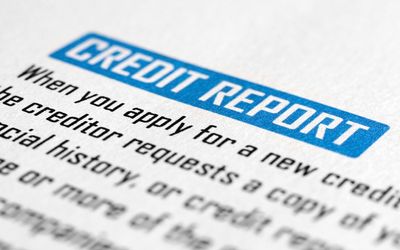THOUGH few of us buy government or corporate bonds, most of us know the "big three" credit rating agencies in this market are Standard & Poor’s, Moody’s and Fitch, whose analysis decides what interest rates big borrowers have to pay.
The names of the multinational credit rating agencies whose verdict decides what interest rates we "small borrowers" have to pay tend to appear in the news less often.
In the US and UK, consumer credit bureaus also tend to be known as the "big three" — Experian, TransUnion and Equifax. From the list of consumer credit bureaus active in SA found at the Credit Ombud website’s list of useful links.
The law here and in most other countries entitles you to check the data that consumer credit bureaus have on you for free once or twice a year, and it is important you do so — especially if you intend applying for a home loan in the near future.
I’d advise doing this directly via both TransUnion’s website and Experian’s. A Google search brought up a huge number of ads from agencies offering to act as intermediaries to check your credit history for you. But judging from all the dodgy "Are you blacklisted? Come to us loan sharks!" ads out there, these are very dangerous waters, so tread carefully.
I last did this exercise over five years ago. This time I found TransUnion’s service very user-friendly, and promptly got e-mailed a report showing, mercifully, I am not a victim of identity theft or garbage data at time of writing.
With Experian, however, I hit the snag that I have no idea what e-mail address and password I used five years ago, and its website wouldn’t let me proceed unless I faxed a copy of my ID. Faxing a copy of my ID sounds like an open invitation to join the queue of identify theft victims.
While the big two consumer credit bureaus are willing to let you view and fact check your credit history for free, it is your credit score that really matters. TransUnion offered to show me mine for R60, but I declined since I’m not in the house market right now. In industry jargon, credit score in synonymous with Fico.
Fico — originally an acronym derived from Fair Isaac Corporation — was something I’d never heard of before doing an online course on machine learning, where an assignment involved taking home loan data (with the identities of the applicants removed) and then trying to predict the interest rate a mortgage provider would offer given an applicant’s income, loan request size and so forth.
Fico is the secret sauce all major consumer credit bureaus use to distill you down to a standardised number between 300 and 850, which every bank and other credit provider in the world then uses to decide whether your credit status is "junk" or triple-A plus.
While Americans all seem aware they have a Fico score and the web is full of US personal finance columns on how to improve your Fico score, we South Africans in general — and our parliamentarians in particular — seem to be in denial about the fact there are two multinationals with vast databases measuring us by international standards.
Experian’s local website links to the Rob Davis-signed "Removal of adverse consumer credit information and information relating to paid up judgments" government notice along with a frequently asked questions document on the government’s "Credit Information Amnesty".
I suspect Experian’s local office mainly put those documents online to give colleagues in their Dublin head office a good laugh. Good luck to any of our local politicians with crap Fico scores in persuading an institution anywhere in the world to issue them with a MasterCard or Visa credit card, no matter what laws they pass.

Credit. Picture: ISTOCK
THOUGH few of us buy government or corporate bonds, most of us know the "big three" credit rating agencies in this market are Standard & Poor’s, Moody’s and Fitch, whose analysis decides what interest rates big borrowers have to pay.
The names of the multinational credit rating agencies whose verdict decides what interest rates we "small borrowers" have to pay tend to appear in the news less often.
In the US and UK, consumer credit bureaus also tend to be known as the "big three" — Experian, TransUnion and Equifax. From the list of consumer credit bureaus active in SA found at the Credit Ombud website’s list of useful links.
The law here and in most other countries entitles you to check the data that consumer credit bureaus have on you for free once or twice a year, and it is important you do so — especially if you intend applying for a home loan in the near future.
I’d advise doing this directly via both TransUnion’s website and Experian’s. A Google search brought up a huge number of ads from agencies offering to act as intermediaries to check your credit history for you. But judging from all the dodgy "Are you blacklisted? Come to us loan sharks!" ads out there, these are very dangerous waters, so tread carefully.
I last did this exercise over five years ago. This time I found TransUnion’s service very user-friendly, and promptly got e-mailed a report showing, mercifully, I am not a victim of identity theft or garbage data at time of writing.
With Experian, however, I hit the snag that I have no idea what e-mail address and password I used five years ago, and its website wouldn’t let me proceed unless I faxed a copy of my ID. Faxing a copy of my ID sounds like an open invitation to join the queue of identify theft victims.
While the big two consumer credit bureaus are willing to let you view and fact check your credit history for free, it is your credit score that really matters. TransUnion offered to show me mine for R60, but I declined since I’m not in the house market right now. In industry jargon, credit score in synonymous with Fico.
Fico — originally an acronym derived from Fair Isaac Corporation — was something I’d never heard of before doing an online course on machine learning, where an assignment involved taking home loan data (with the identities of the applicants removed) and then trying to predict the interest rate a mortgage provider would offer given an applicant’s income, loan request size and so forth.
Fico is the secret sauce all major consumer credit bureaus use to distill you down to a standardised number between 300 and 850, which every bank and other credit provider in the world then uses to decide whether your credit status is "junk" or triple-A plus.
While Americans all seem aware they have a Fico score and the web is full of US personal finance columns on how to improve your Fico score, we South Africans in general — and our parliamentarians in particular — seem to be in denial about the fact there are two multinationals with vast databases measuring us by international standards.
Experian’s local website links to the Rob Davis-signed "Removal of adverse consumer credit information and information relating to paid up judgments" government notice along with a frequently asked questions document on the government’s "Credit Information Amnesty".
I suspect Experian’s local office mainly put those documents online to give colleagues in their Dublin head office a good laugh. Good luck to any of our local politicians with crap Fico scores in persuading an institution anywhere in the world to issue them with a MasterCard or Visa credit card, no matter what laws they pass.




















Change: -0.47%
Change: -0.57%
Change: -1.76%
Change: -0.34%
Change: 0.02%
Data supplied by Profile Data
Change: -1.49%
Change: 0.08%
Change: -0.47%
Change: 0.00%
Change: -0.04%
Data supplied by Profile Data
Change: -0.34%
Change: 0.03%
Change: -0.10%
Change: -0.22%
Change: -0.69%
Data supplied by Profile Data
Change: -0.28%
Change: -1.15%
Change: -0.07%
Change: -1.21%
Change: -0.22%
Data supplied by Profile Data